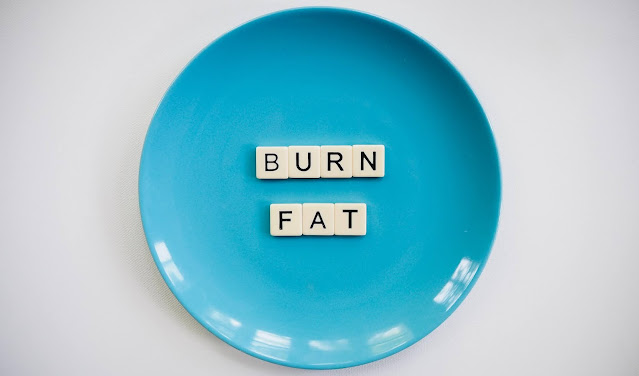Weight loss is mostly based on lowering total calorie consumption rather than altering the carbohydrate, fat, and protein balances in the diet.
A 5–10 per cent reduction in body weight over 6 months is an acceptable weight loss target to begin noticing health benefits.
Most people can reach this aim by lowering their total daily calorie consumption to between 1,000 and 1,600 calories.
A daily diet of fewer than 1,000 calories will not give enough nutrients.
Because humans consume less energy at lower body weight, the rate of weight loss normally slows after 6 months of dieting, and body weight tends to plateau. The best strategy to avoid regaining lost weight is to stick to a weight management programme that includes healthy eating habits and regular physical activity.
1. Eat a diverse range of colourful, nutrient-dense meals.
Human diets should be based on nutrient-dense meals and snacks. As an easy way to establish a meal plan, make sure that each meal has 50% fruits and vegetables, 25% whole grains, and 25% protein. Fibre consumption of 25–30 grammes (g) per day is advised.
 |
| Nutritious and Healthy |
The following foods are both nutritious and healthy:
Fruits and veggies that are in season
Fish, legumes, nuts and seeds
Brown rice and oats are two examples of whole grains.
Foods to stay away from include:
Fatty red or processed meats
Foods with additional oils, butter, and sugar
Items made from flour
Processed foods bagels white bread
In rare cases, removing certain foods from one's diet can cause a shortage of vital vitamins and minerals. A nutritionist, dietician, or other healthcare experts can help a person receive enough nutrients while on a diet.
2. Maintain a diet and weight journal
Self-monitoring is necessary for successful weight loss. A paper diary, a mobile app, or a specialised website can be used to record every item of food ingested each day. They can track their success by keeping track of their weight every week.
Those who can track their progress in modest steps and recognise physical improvements are more likely to stick to a weight-loss plan.
A BMI calculator can also be used to maintain track of one's body mass index (BMI).
3. Exercise and be physically active regularly.
Regular exercise is good for your physical and mental wellbeing. Increasing the frequency of physical activity in a disciplined and planned manner is usually necessary for successful weight loss.
Every day, one hour of moderate-intensity activity, such as brisk walking, is recommended. If one hour each day isn't possible, the Mayo Clinic suggests aiming for at least 150 minutes per week.
People who are not ordinarily active should gradually increase the amount of exercise they do and the intensity with which they exercise. This is the most long-term technique for ensuring that regular exercise becomes a habit.
People may benefit from documenting their physical activity in the same manner that they may benefit from tracking their meals in terms of mental weight loss. A variety of free mobile apps exist that measure a person's calorie balance after they register their diet and exercise.
If the prospect of a complete workout scares someone who has never exercised before, they can start with the exercises below to improve their fitness:
Taking the steps
Leaves raking
Taking the dog for a walk
Gardening
Playing outdoor games
Individuals with a low risk of coronary heart disease are unlikely to need medical clearance before starting an exercise programme.
A prior medical evaluation may be required for some people, such as those with diabetes. Anyone unsure about how much exercise is safe should get medical advice.
4. Remove all liquid calories from your diet
Hundreds of calories can be consumed each day by drinking sugar-sweetened soda, tea, juice, or wine. Because they provide more energy without giving any nutritional benefit, these are referred to as "empty calories."
Unless they are replacing a meal, people should consume water, unsweetened tea, or coffee instead of smoothies. With a bit of fresh lemon or orange, you may make flavorful water.
Dehydration is not the same thing as hunger. Between scheduled meal times, a glass of water can usually satisfy hunger pains.
5. Measure out servings and keep track of how much you eat
When you eat too much of anything, including low-calorie vegetables, you might gain weight.
As a result, customers should avoid making educated guesses about serving quantities or eating directly from the container. It is advisable to use measuring cups and follow the serving size recommendations. Guessing can lead to overestimation and the consumption of a larger-than-necessary meal.
6. Eat slowly and deliberately
Many people reap the benefits of mindful eating, which comprises paying attention to why, how, when, where, and what they eat.
Making healthier eating choices is a direct outcome of becoming more in tune with one's body.
Mindful eaters take their time and savour their food, concentrating on the flavour. Allowing the body 20 minutes to process all satiety cues is a good idea.
It's important to focus on feeling satisfied rather than full after a meal and to keep in mind that many "all-natural" or low-fat foods aren't always the healthiest choice.
7. Controlling stimuli and cues
Overeating can be caused by a variety of social and environmental factors. Some people are more likely to overeat while watching television, for example. Others find it difficult to deliver a candy dish to someone else without nibbling.
People may consider ways to alter their routine to avoid these triggers by being aware of what may stimulate the desire to consume empty calories.
8. Prepare ahead of time
Stocking a kitchen with diet-friendly goods and sticking to a strict food plan will help you lose weight more effectively.
Purge your kitchen of processed or junk foods and stock up on ingredients for quick, healthy meals if you want to lose weight or keep it off. This will assist you to avoid eating on the spur of the moment, unintentionally, and irresponsibly.
Making meal plans ahead of time before attending social events or dining establishments may help the process run more smoothly.
9. Seek out social assistance
Embracing the support of loved ones is essential for a successful weight loss journey.
Some people like to invite friends or family members to join them, while others prefer to discuss their progress through social media.
Other sources of assistance could include:
- employee help services at work
- positive social network
- group or individual counselling
- exercise groups, or partners
10. Maintain an optimistic attitude
Weight reduction is a slow process, and if the pounds don't fall off as quickly as planned, it's easy to grow discouraged.
Some days will be more challenging than others when it comes to sticking to a weight loss or maintenance programme. When self-change appears to be too difficult, a good weight-loss programme demands the individual to persevere and not give up.
Some people may need to re-evaluate their goals, either by altering their workout routines or lowering the total number of calories they wish to consume.
The most essential thing is to keep a positive attitude and continue in overcoming the challenges that come with losing weight.



No comments:
Post a Comment